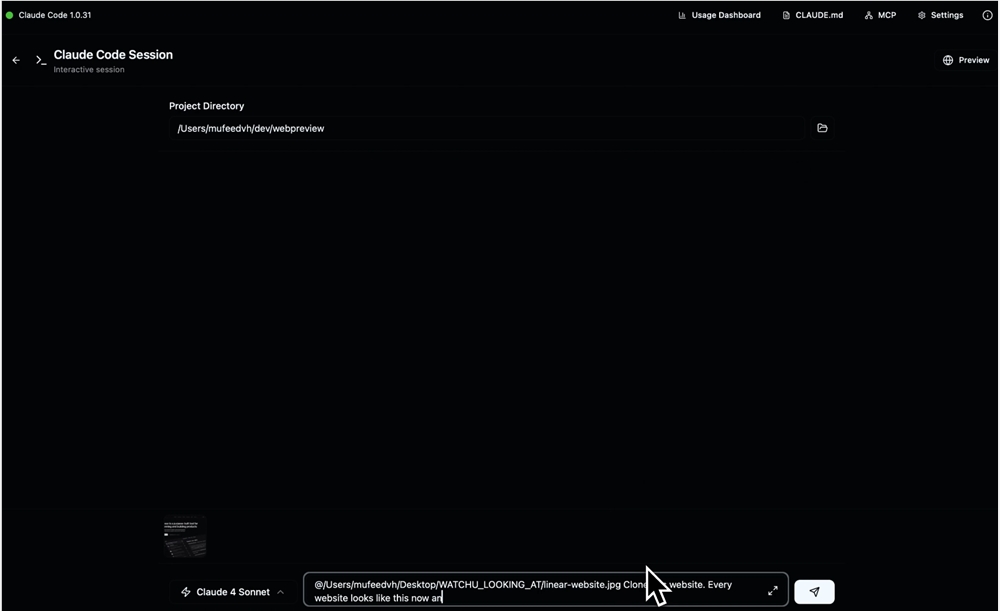AI-assisted programming has seen a significant breakthrough with the official release of Claudia, the desktop graphical client specifically designed for Claude Code. The launch of this application marks a major shift in AI development tools from purely command-line operations to visual interactions. Developers can finally bid farewell to cumbersome terminal commands and enjoy a more intuitive and convenient AI programming experience.
Claudia utilizes the most advanced desktop application development technology stack, built on the Tauri2 framework, with React and TypeScript used for the frontend interaction. This technical choice ensures that the application remains lightweight while delivering a smooth user experience and cross-platform compatibility.
The core value of the application lies in bridging the gap between traditional command-line tools and modern developer work habits. In the past, developers had to use complex command-line instructions to operate Claude Code; now, with Claudia's graphical interface, all operations have become visualized and simplified, significantly lowering the barrier to using AI programming tools.
In terms of project management features, Claudia performs exceptionally well. The application can automatically scan and identify installed Claude Code on the system, allowing users to start using it without manual configuration. For all projects stored in the .claudedirectory under the user's home directory, Claudia provides full visualization browsing support, enabling developers to quickly locate and open any historical project through an intuitive interface.

Session management is another core advantage of Claudia. The application not only displays a complete list of all historical coding sessions but also offers powerful search and filtering functions. Developers can quickly find specific session records based on project names, time ranges, or keywords, avoiding the hassle of manually searching through large volumes of data.
The display of session details is also thoughtfully designed. Each coding session includes complete metadata information, including the session creation time, initial interaction content, and the duration of the session. These data help developers quickly recall the content of the session and provide valuable references for project progress tracking and workload assessment.
The real-time session monitoring feature further enhances productivity. Claudia can automatically detect currently running Claude Code sessions and provide centralized management within a unified interface. Developers no longer need to switch between multiple terminal windows to manage the status of all active AI programming sessions.
From a user experience perspective, the release of Claudia addresses key pain points in the adoption of AI-assisted programming tools. Many developers recognize the value of AI tools but are often hindered by complex command-line operations. Claudia, by offering a friendly graphical interface, allows more developers to easily get started with AI programming tools and enjoy the efficiency gains brought by artificial intelligence.
The release of this application also holds strategic significance. Currently, AI-assisted programming is rapidly gaining popularity, with various developers seeking suitable tools to integrate AI capabilities into their daily workflows. As the official graphical client for Claude Code, Claudia fills a gap in this niche market and makes an important contribution to the improvement of the entire AI development ecosystem.
From a technological trend perspective, the release of Claudia signals that AI development tools will place greater emphasis on user experience and usability. As AI technology continues to mature, accessibility and user-friendliness will become key factors determining market acceptance. Claudia's exploration in this area sets a new benchmark for the industry.










